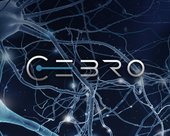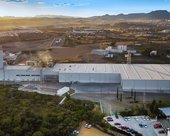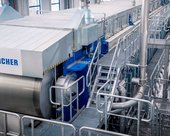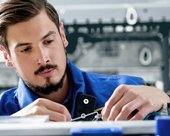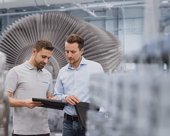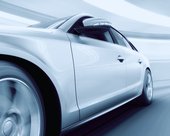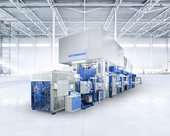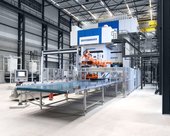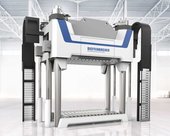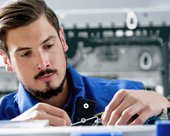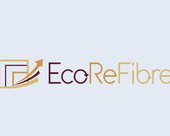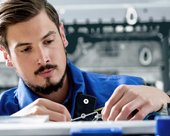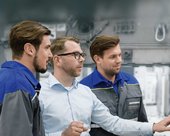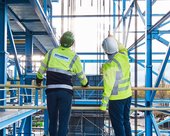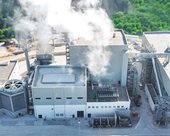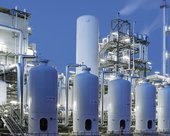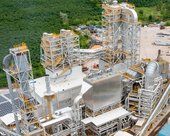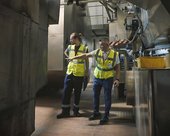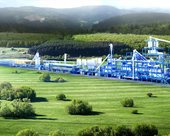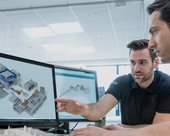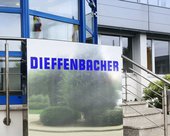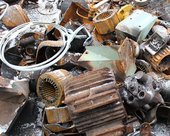Composites manufacturers eager to help their customers in the automotive, aerospace and sports and leisure industries seize e-mobility opportunities will want to visit with German machine and plant manufacturer DIEFFENBACHER at JEC World 2024 in Paris, March 5 to 7, in hall 5, booth L115. The company’s manufacturing technologies and plants support the production of all kinds of mobility solutions, ranging from automotive parts to emerging applications like transportation and passenger drones and electric surfboards and jet skis.
“The mobility of the future is becoming more diverse every day,” says Georg Obermaier, Head of the Forming Business Unit at DIEFFENBACHER. “When it comes to complete plants for producing composite components, we have the right solution for almost every application. At JEC World 2024, we look forward to learning the latest use cases and collaborating with our partners and customers to find the perfect solutions to their challenges.”
Examples of applications produced with DIEFFENBACHER equipment include battery housings, battery boxes and underbody covers for many e-mobility applications such as drones and electric cars, and even bicycle components such as frames and rims. The processes on display will include Sheet Molding Compound (SMC), GMT and Long Fiber Thermoplastic Direct-Molding (LFT/LFT-D) as well as the DIEFFENBACHER Tailored Blank Line, including Tape Laying and consolidation technologies. DIEFFENBACHER’s core competence, the hydraulic press, plays a major role in all these processes.
On Wednesday, March 6, at 4:30 p.m. in hall 5, DIEFFENBACHER Sales Manager Raimund Grimm will present “Thermoset and Thermoplastic Technologies for EV Applications.” He will discuss the advantages and disadvantages of thermoset and thermoplastic materials and what an efficient and sustainable production process looks like.
Two recent projects that demonstrate DIEFFENBACHER’s approach are Teijin’s SMC plant in Milovice, Czech Republic, and REIN4CED’s Tailored Blank Line in Leuven, Belgium. “We recently successfully commissioned our new DIEFFENBACHER SMC line for producing battery covers. I highly recommend visiting with their experts at JEC World 2024 to learn what DIEFFENBACHER can make possible in composites manufacturing,” says Lukas Mildorf, Technical Director at Teijin. REIN4CED CTO Michaël Callens concurs. “DIEFFENBACHER has repeatedly proven to be the perfect partner for automated Tape Laying, consolidation and forming. That’s why we launched a strategic partnership with them for the thermoplastic manufacturing of carbon bicycle frames,” he says.
DIEFFENBACHER’s presence at JEC World 2024 will be rounded off by digitalization and sustainability solutions. DIEFFENBACHER’s digitalization platform EVORIS uses artificial intelligence to make plants faster and more efficient. “EVORIS gives us much better insights into our production and better possibilities to influence it,” says Christoph Bless, Head Operational Maintenance & Repair at Autoneum in Sevelen, Switzerland. Autoneum has used EVORIS since 2022. “DIEFFENBACHER’s approach stands out from the crowd. They offer the complete package, everything from the platform to sensor technology and plant know-how to technologist knowledge for the entire production line,” Bless adds.
Companies interested in sustainability have numerous options from DIEFFENBACHER for various production processes. The Fiberpress hydraulic press in Teijin’s SMC line, for example, is equipped with variable-speed pump drives that minimize unnecessary energy consumption. The DIEFFENBACHER Fiberforge that’s part of REIN4CED’s Tailored Blank Line helps the bicycle frame manufacturer use its valuable raw materials as efficiently as possible. It can cut UD tapes at any angle between -45° and 45° to produce a contour with minimum waste. DIEFFENBACHER’s adaptive accumulator management of the hydraulic drive system optimizes the energy consumption of hydraulic press systems by automatically determining during the first press strokes the exact energy required for forming. For subsequent production cycles, the hydraulic drive accumulator is charged only to the corresponding required pressure level.
“We’re excited to once again present our solutions to the composites industry at JEC World 2024,” says Marco Hahn, Director Sales of the Forming Business Unit. “We look forward to having deep discussions, exploring new business opportunities and strengthening existing partnerships. We’re also thrilled to start new partnerships with the common goal of moving forward together,” he concludes.

